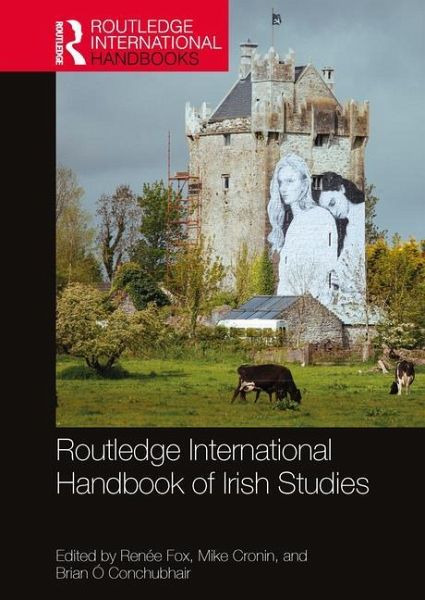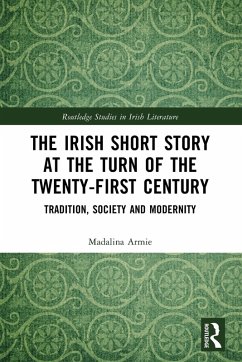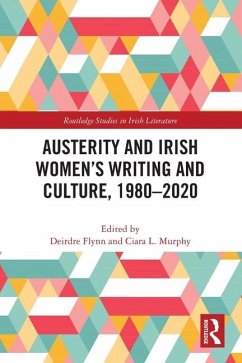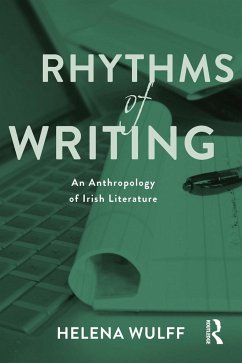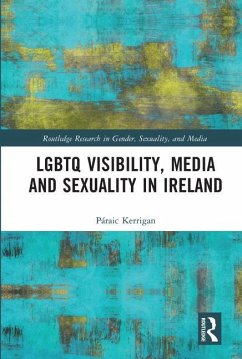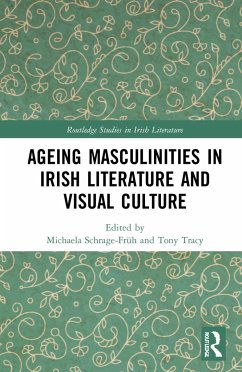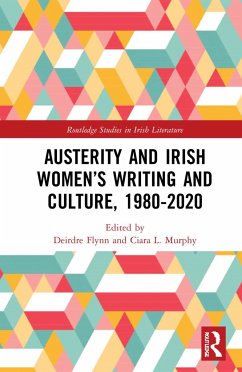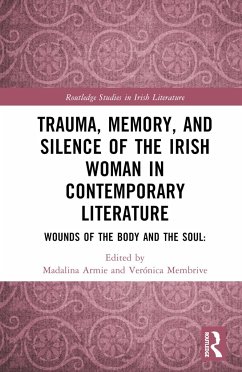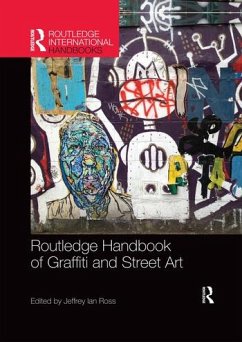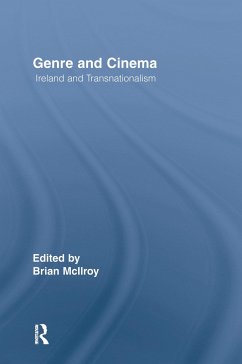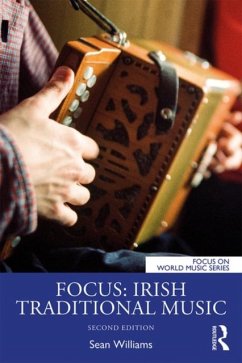developments both in Ireland and in Irish studies that makes this collection both a success and also a valuable corrective to the somewhat repetitive 'deep history' approach to Irish history. Indeed, this range offers a strong model for comparable work on other areas. The collection is to be welcomed, and hopefully will encourage much debate including over methodology."
Jeremy Black,
Journal of European Studies 51(2)"The handbook will be a fascinating read in the future, establishing which of the wide range of predictions and assessments made by its authors have proved accurate; for the moment, it is sure to serve as an important resource to students of Ireland and the international public alike, as well as a useful interdisciplinary compendium to scholars..."
Ondrej Pilny,
Charles University, Prague"If a new round of debates about how to conceptualize the Irish past are indeed upon us, this Handbook provides a useful and timely service. The essays here, taken as a whole, show how both Irish history-writing, and the multidisciplinary field of Irish Studies more broadly, can move beyond insular and old-fashioned ways of writing about modern Ireland and how Irish academics can learn from and meaningfully engage with the rest of the world."
Aidan Beatty,
The Galway Review"This vastly rich and varied collection of essays supplies a wide-ranging account of the history and evolution of the vibrant academic discipline that is Irish Studies... The emphasis is on putting forward an honest and objective appraisal of the multifaceted and intriguing discipline that those of us working in Irish Studies have many reasons to be grateful for."
Eamon Maher,
National Centre for Franco-Irish Studies, Ireland; published in
Studies: An Irish Quarterly Review, Autumn 2021"Their priority is the period since the 2008 banking crash that ended the Celtic Tiger period, bringing readers from there to the present moment with a concluding essay by Malcolm Sen that addresses the impact that the COVID pandemic might have on Irish Studies.At a time of confusion and unresolved crisis (due to COVID, Brexit, and more), the book feels like a meaningful contribution not just into Irish Studies but into Irish life more generally."
Patrick Lonergan,
National University of Ireland, Galway; published in
Review of Irish Studies in Europe 4.2
"The
Routledge International Handbook of Irish Studies constitutes a very comprehensive volume that explores a broad variety of study areas within Irish Studies and how these have evolved in the post-Celtic Tiger period. This volume, attending to the changes that Ireland has experienced in its social, economic, cultural and political spheres due to the 2008 economic downturn, provides valuable insights into different fields of study that appeal to a wide range of scholars and students not only within the field of Irish Studies but also within other disciplines such as history, economics, sociology, political sciences, cultural studies and literature."
Iria Seijas-Pérez,
Universidade de Vigo;
published in
BABEL-AFIAL, 30 (2021): 151-158
"The
Handbook casts a critical eye on Irish Stud>ies as a discipline, what form it has taken at present, and how global and local challenges have influenced the very narrative of the field. It prompts the reader to reflect on the current state of Irish Studies and the way the discipline has evolved during the period from 2008, the time of austerity, when the global economic crash hit Ireland, and up to 2020 when the COVID-19 pandemic broke out. Within this rather tight time framework, the
Handbook successfully navigates between wider perspectives and close-ups, engaging its readers in a thought-provoking conversation, re-evaluating the past, (re)concep>tualizing the present, and mapping out the future."
Alla Kononova, Tyumen University, Russia; published in
VTU Review: Studies in the Humanities and Social Sciences Volume 5 Issue 2
. "The Routledge Handbook of Irish Studies, edited by Reneé Fox, Mike Cronin, and Brian Ó Conchubhair, is without question an ambitious book. It seeks to give a comprehensive overview of the state of the field of Irish studies in 2020, and, overall, it succeeds at that goal. It is a substantial work, coming in at around 500 pages with thirty-nine essays written by subject area specialists in fields ranging from history and literature to architecture, queer (or quare) studies, music, material culture, women's studies, and material culture to give but a sample. These areas are broadly organised into six sections: an Overview, Historicizing Irish Studies, Global Ireland, Identities, Culture, Theorizing, and Legacy. Temporally, while occasionally dipping back to earlier periods, the collection focuses on the period from the nineteenth century forward and ends with a final essay addressing Ireland and COVID-19."
John A. Ball, Oklahoma State University, USA; published in
Estudios Irlandeses, Issue 17, 2022
"The essays in RHIS collectively make an argument not just for how Irish Studies has changed, but also offer a working model of how it should continue changing. Setting the baseline of Irish Studies as it existed before and during the Celtic Tiger period, this collection makes a collective argument that Irish Studies has pulled away from its historic focus on nationalism and church history. It shows a growth beyond the constraints of history and literature to incorporate other academic disciplines. It calls for more gender inclusivity, and especially for more gender and queer theory. It argues that contemporary Ireland needs more engagement with theories and scholarship around race to reflect what it means to be Irish today. Its scholarship shows that neoliberal governmental policies are not only creating widening economic disparities, but they are also failing to provide needed support for the Irish language."
John H. Ball,
Hillsborough Community College, Florida, USA"
The Routledge International Handbook of Irish Studies and
The New Irish Studies certainly evoke limits, but they also take time in special ways, tracing their own timelines and shaping history on unexpected scales. In the process, they recruit to their aid not only novels, but also poems, plays, historical events, performances, paintings, media, sports, buildings, music, animals, sexualities, emotions, environments and disabilities."
Charles I. Spencer, "Routledge International Handbook Of Irish Studies And New Irish Studies", Published online on Aris Today.
"Add to this list critical race theory and disability studies - exemplified here by Joseph Valente's bold essay on late Yeats - and you have the agenda. Guides to the territory have now appeared, in
The New Irish Studies edited by Paige Reynolds and the edgy and enormous
Routledge International Handbook of Irish Studies. The mix of topics might look familiar, but it does reflect changes in Irish society."
John Kerrigan, "Turning Wolfe Tone" in
London Review of Books, Vol. 44 No. 20
"Beginning with the global financial crash of 2008 and its impact (and aftermath) in Ireland, approaches to Irish Studies, much as Irish culture and society itself, has moved on considerably from a people defined by religion and a specific place, as is pointed out in this volume. Increasingly the area has embraced more diverse fields of critical enquiry including queer studies, disability studies, critical race studies, and ecocriticism-fields that have informed dedicated chapters within this volume."
Seán Crosson,
University of Galway, Ireland, UK"This book achieves one of its goals of examining Irish Studies in more complex ways than has traditionally been the case because of the diverse topics employed to discuss each theme. The interdisciplinary approach lends itself to presenting new frameworks to (re)conceptualise Irish Studies and allows for the use of diverse approaches and underutilised methodologies."
Dr Brian de Ruiter,
Brock University, Canada